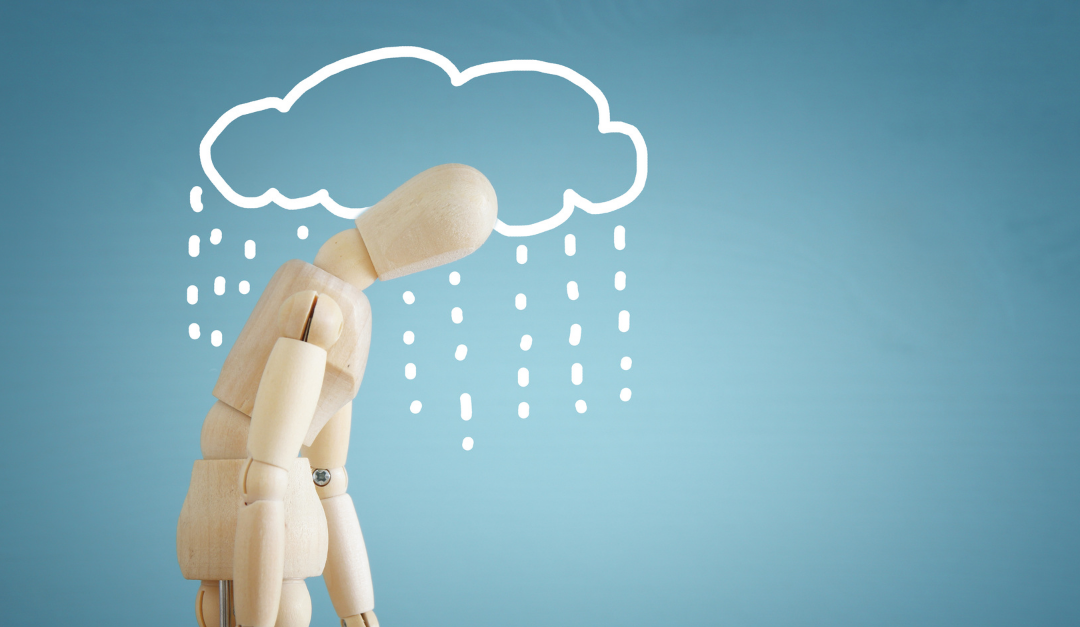
Anxiety: A Modern-Day Challenge
Anxiety: A Modern-Day Challenge
At some point in our lives, we all experience anxiety. Often this feeling of anxiety is not a prolonged experience that weighs people down. In many cases, it acts as an energy and emotion that can spur growth and bring about change. However, when the feeling of anxiety remains with us for an extended period then the emotional, physical and physiological impact can be unbearable.
In Australia today, approximately 1 in 5 young women and 1 in 10 young men between the ages of 16-25 are affected by anxiety. Parents and Guides website states that “almost 7 per cent of Australian children and adolescents have an anxiety disorder”. A person living with this mental health issue may struggle to articulate just how overwhelming their anxiety feels, and how it severely affects how they interact with others. It affects how they manage their study, work and social environment. Anxiety is a debilitating modern-day illness that weighs a person down and prevents them from being themselves and enjoying life to its fullest.
Recent studies from the UK published by BBC news states that in October 2019, 54% of 13 to 14-year-old girls and 26% of boys of the same age said they felt anxious. When surveyed in May 2020 – several weeks after schools shut to most pupils, and nationwide lockdown restrictions came into force – the proportion of young people who were experiencing anxiety dropped to 45% of girls and 18% of boys. The researchers had questioned 1,000 Year 9 students from 17 secondary schools across the south-west of England.
There are six key learnings I believe that we need to be aware of as educators when working with young people:
- Environment
Schools need to ensure that their learning environment does not contribute or heighten a young person’s anxiety. Hence, school communities need to be mindful of the language and tonality used when working with students, parents and fellow colleagues. Students make choices on how they can feel safe and secure within their learning environment. Embracing Maslow’s hierarchical needs model, unless the basic needs are met, high order intervention strategies are less likely to be as effective.
Conversations that involve the use ‘of shaming language’ can further damage self-esteem and self-image. Plus, it may drain confidence and the human spirit. It does not contribute to a learning environment where students are encouraged to explore, take risks and control of their own learning.
Anxiety contributes to uncontrolled difficulty in thinking clearly because of an overload of negative thoughts. So an environment void of fear, retribution, judgment helps to reduce feelings of anxiousness.
- Wellbeing Management
When working with young people, one can anticipate that there will be times when they will make irrational choices and decisions, which impacts on their behaviour and others. So what is effective, is for schools to have a student wellbeing and management process that is not punitive based. It is a given that there are consequences for inappropriate and antisocial behaviour, however, there are interventions that are respectful, and allow young people to learn from their mistakes and adhere to procedural fairness processes.
- Transparent Processes
It is important that there is transparency and predictability with school processes, particularly in response to students when things do not go as planned. Reactive responses are not helpful for young people who experience anxiety. Therefore, the language of correction and engagement allows for respectful dialogue and the opportunity to be listened and heard without being pre-judged.
- Empathy
Anxiety can be connected to hurtful life experiences, such as bullying, or excessive pressure of work, study or social dynamics. So the last thing needed is to trigger and add to feelings of anxiety. Every negative thought that a person feels has an effect on their physiology and emotional wellbeing. It is quite common for a person with anxiety to feel on edge, incapable of attempting tasks, and facing new and unfamiliar situations. This fear of the unknown, and the overpowering feeling of being judged, makes anxiety a challenge to manage. As educators, we need to be mindful of how the ‘other’ feel.
- Understanding Behaviours
A person living with anxiety will even try to avoid all social interactions, which contributes to further isolation, nervousness and reduced wellbeing. These unpleasantries fuel and contribute to stronger feelings of danger and insecurity. Even if the danger may not be real, it makes a person feel vulnerable and exposed to potential ridicule, and judgment.
Anxiety reveals itself in many ways. It is not uncommon for some sufferers to want to do whatever is possible to please others, do whatever is possible to make things right. Some may become hypervigilant in their behaviour, always looking for safety and protection or keeping the mind busy with tasks and activities that they are confident and most comfortable completing. Others may isolate and avoid all contact, lock themselves in the bedroom, stay in bed and avoid all social contact.
- Supportive Action
If we have a loved one or a person that we know who is affected by prolonged feelings of anxiety. It is soothing to reassure them that they are safe, secure and they have your support. Dismissing how they feel does not help, however, listening to how they feel and asking them, what they need from you or others, is far more effective. Seeking the professional support of a counsellor or psychologist is ideal, and having a choice is likely to deliver better outcomes and contribute to a positive experience. In addition, it may be beneficial to explore the introduction of a healthier diet with the assistance of a dietician or family doctor, and alongside the exploration of activities that are creative and expressive such as art, music, writing/journaling, dance and meditation.
It is essential to remember that feelings of anxiety can make a person feel alone, so engaging in activities and being constant support helps reduce feelings of anxiousness. The encouragement and understanding of loved ones are invaluable and highly therapeutic. So being present, without judging, creates positive endorphins and a feeling of love, nurture, care, and understanding, which contribute to more uplifting and affirmative thoughts.
With the world experiencing the effects of the pandemic, feelings of anxiety are likely to be more widespread in adults and young people. As research shows us, we need to be open to building new ways to connect and support those experiencing all kinds of mental health difficulties. That is why I am passionate about Restorative education because it enables all of the points above to be implemented.

Recent Comments